OP Sequence
 |
 |
 |
 |
 |
 |
 |
 |
OP: 「07734」 by 神谷浩史 (Kamiya Hiroshi)
 |
 |
 |
 |
 |
 |
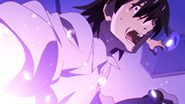 |
 |
 |
 |
 |
 |
 |
 |
 |
 |
 |
 |
 |
 |
 |
 |
 |
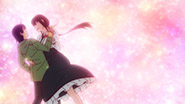 |
 |
 |
 |
 |
 |
 |
 |
 |
 |
 |
 |
 |
 |
 |
 |
 |
 |
 |
 |
 |
 |
 |
 |
 |
 |
 |
 |
 |
 |
 |
 |
 |
 |
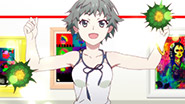 |
 |
 |
 |
 |
 |
 |
 |
 |
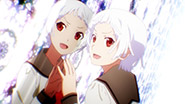 |
 |
 |
 |
 |
 |
 |
 |
 |
 |
 |
 |
 |
 |
 |
 |
 |
 |
 |
 |
 |
 |
 |
 |
 |
 |
 |
 |
 |
 |
 |
 |
 |
 |
 |
 |
 |
 |
 |
 |
 |
 |
 |
 |
 |
 |
 |
 |
 |
 |
 |
 |
 |
 |
 |
 |
 |
 |
 |
 |
 |
 |
 |
 |
 |
 |
 |
 |
 |
 |
 |
 |
 |
 |
 |
 |
 |
 |
 |
 |
 |
 |
 |
 |
 |
 |
 |
 |
 |
 |
 |
 |
 |
 |
 |
 |
 |
 |
 |
 |
 |
 |
 |
 |
 |
 |
 |
 |
 |
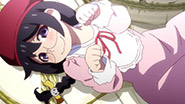 |
 |
 |
 |
 |
 |
 |
 |
 |
 |
 |
 |
 |
 |
 |
 |
 |
 |
 |
 |
 |
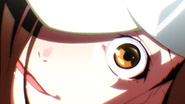 |
 |
 |
 |
 |
 |
 |
 |
 |
 |
 |
 |
 |
 |
 |
 |
 |
 |
 |
 |
「こよみリバース」 (Koyomi Ribaasu)
“Koyomi Reverse”
Spoilers for the ending of Christopher Nolan’s Inception.
In Christopher Nolan’s 2010 film Inception there exists technology that allows one to enter the dreams of others. This is portrayed as a surreal but vivid experiences and sometimes difficult to discern from reality, so prospective dream intruders carry with them ‘totems’ that can tell them if they’re in a dream. The protagonist’s totem is a top; when the top is set to spin within a dream it will not stop. At the end of the film, after a harrowing journey where he triumphs over his inner demons, the protagonist manages to escape from being trapped in a dream and earns his happily ever after. He spins his totem one last time, but is called away by his newly reunited family. The camera lingers on the spinning top. Cut to black.
It was a controversial ending at the time. I remember the buzz of bewilderment all around me as I exited the theatre where I had watched the film. The mates I watched it with and I found plenty of discussion with which to entertain ourselves. Did the protagonist ever escape the dream world? Was he driven insane? Was it actually a dream all along? My personal interpretation of the ending always was that it didn’t matter whether it was all a dream or not, and that was the point. Even if it was a dream, the protagonist’s journey was real and the lessons he learnt from it were valuable. His ‘happy ending’ was not based on any concrete exploit, but based on resolving the conflicts within himself.
The Monogatari Series has also made hay out of this theme. Buried within everything from the plot and the presentation is a contemplation of what is true and what is not, and whether that matters either way. Those of you who have been watching the anime need now introduction to the surreal visuals of Monogatari, which Zoku Owarimonogatari continues to indulge in on a level that matches Tsukimonogatari (and looks good while doing it). Sometimes we’re pretty sure it’s symbolic. Sometimes we’re pretty sure it’s meaningless. Most of the time it’s fanservice distraction while characters talk. And as they talk, we’re reminded that Araragi is our narrator and we are invited to question his perspective and reliability. Interwoven into the story are characters like Kaiki, whose very essence is lies. And their dialogue is littered with puns and innuendo that at once add to and obfuscate meaning. Basically, Monogatari plays with our interpretation of reality on every level, if only to make things interesting.
And so it’s only natural that Zoku Owarimonogatari, as the bookend (of the bookend) of the series, provides some final thoughts on that theme. At first I thought that the entire business with the mirror world was simply the obvious pun; at the end of every story our hero should take some time for self-reflection and, well, here we are. It would be an entirely shameless premise, but let’s not pretend that Monogatari is not perfectly capable of shamelessness. Or perhaps it’s just an excuse for licensed fanfiction. Want more adult Mayoi? Here she is. Want to indulge in a happy ending for Sodachi? We can have that. Frustrated that Kanbaru’s mother died off before the story started and so never had to explain the whole monkey’s paw business? Got you covered (but at the same time, not covered at all). All you need is a handy alternate universe where anything goes so you can back out of all those dead ends you wrote yourself into in the canon story. Long running series love to do this, and here I’ll point the finger directly at the engorged whale that is the Fate franchise. Sitting in the middle of its tangled web of multiverse mayhem is head writer Nasu Kinoko, who changes his canon every other month. This is because he’s not so much interested in a canon as he is in playing around with the game pieces he had designed. While the Monogatari Series is not quite so expansive as Fate, it’s sure persisted long enough and has its own mythological melting pot ot play with, so I wouldn’t be surprised if Zoku Owarimonogatari decided to simply indulge.
To be frank, a good deal of Zoku Owarimonogatari is indulgence or another. But what it seems most interested in is the metafiction. In its exploration of the value of truth and lies its inevitable taht Monogatari would turn to itself. After all, all fiction is but a series of well-crafted lies, but we don’t really hold that against it. Ougi outright asks Araragi how he would feel if it turns out his entire supernatural high school life turned out to be all a dream. Utterly fictional. And Araragi’s take: it doesn’t matter. The things he saw and the lessons he learnt all shaped him into the Araragi he is today. Though fiction is by definition not real, it can be more valuable than the real, able to teach us things about ourselves and the world in ways we can never experience. And this philosophy defies the notion of a canon. Sure, canonically Sodachi didn’t really get that happy ending. Gaen Tooe is dead and buried. Shinobu has not been human for aeons. But are these what-ifs any less meaningful just because they weren’t, in strict sense, real? At the very least Araragi will be sure to carry them with him, even if he only lived it for scarcely two days.
But it is also the way of stories to have to end. Each of these what-ifs are arguably loose ends in the plot that will have to mostly float there for us to wonder about (Hanamonogatari aside). But Araragi moves on, and perhaps now we can truly say that his adolescence is complete. And if his adolescence is complete, so really should be the Monogatari Series.
ED Sequence
 |
 |
 |
 |
 |
 |
 |
 |
ED: 「azure」 by TrySail

To enjoy this movie is it recommended to watch other Monogatari Series first?
I unfortunately have only see part of the of them years ago.
Unfortunately, that’s basically a requirement. Owarimonogatari is the ‘End Story’, and this was more or less the denouement of the series. Going in without having watched it would just be confusing.
Ah, makes sense — thank you!
Came for the Senjougahara screenshots.
You’re welcome!
SO did Ougi not turn into a boy and is just wearing Koyomoi’s uniform?
I would assume that Ougi, as ‘Oshino Meme’s niece’, is still female. After all, she wasn’t really the Araragi Koyomi of the mirror world, she just swapped the uniforms to spur Araragi along.
I remember watching Bakemonogatari when it first came out and thats going back a fair few years now and I was in awe with the visuals, music and style. I watched Neko-Monogatari but other than that thats it. Theres just WAY too many now and I cant even tell whats what or what comes after (and before) the other.
There definitely is a daunting amount of Monogatari out there. If you’re up for tackling it again, I think watching in broadcast order would be easiest. That is, Bake => Nise => Monogatari 2nd => Hana => Tsuki => Owari => Kizu => Koyomi => Owari 2nd => Zoku Owari.
Omg I really love your writing, especially the closing paragraph on adolescence, giving me a nostalgic sense.
Thanks! Just writing that stuff made me feel old.
Seconded. Passerby’s posts are the reason I still visit this site.
Aw shucks. But we’d love to have you around more often.
Actually may I ask what you think of the relationship between Araragi with the other female characters (Shinobu, Hanekawa, Hachikuji and Senjougahara)? Of course Araragi loves Senjougahara, but it seems like the other characters are no less important to him. Some kind of bonds, other than romantic love?
This is something that Monogatari always left fuzzy. Araragi obviously cares about females of all stripes, Monogatari also makes sure to vary the relationships to keep the relationships distinct. Shinobu lives in Araragi’s shadow as his life partner. Hanekawa is someone he puts on a pedestal and considers unreachable. Hachikuji is dead. I think Monogatari makes a point of having Senjougahara be the only one Araragi really has a normal lovers relationship we can clearly recognise because she’s the only girl who actually is normal. She overcame her oddity issue. She doesn’t have any regrets. She doesn’t appear in the mirror world Araragi created. So she’s the only one who pulls off the wholesome, uncomplicated girlfriend role.
Yup, thank you for putting it in such a wholesome manner. Totally agreed, though I was still deeply impressed by the conversation between Shinobu and Araragi in the previous season (on if one of them dies…) – the level of connection between the two of them is totally on another level. Don’t know why, but that scene kinda reminds me of an old couple (who have spent their whole life together) having small talk at sunset. May be because they have gone through much life and death together.
In comparison, I think that the relationship between Senjougahara and Araragi is not as deep (yet) though is much more romantic, making one’s heart flutter in away. Really love this explanation of yours “She overcame her oddity issue. She doesn’t have any regrets. She doesn’t appear in the mirror world Araragi created. So she’s the only one who pulls off the wholesome, uncomplicated girlfriend role”
I probably need to watch the whole series again to understand your comment that “Hanekawa is someone he puts on a pedestal and considers unreachable.” Such a pity given that she also loved him at one point.
Anyway I am happy that Araragi is together with Senjougahara in the end, love this girl so much >”<. Needless to say, all the female characters in this series are just beyond awesome.
“Though fiction is by definition not real, it can be more valuable than the real, able to teach us things about ourselves and the world in ways we can never experience.”
Nice line there to go with the theme of reflection and the value of perceived truth. Good write-up!
Thanks!